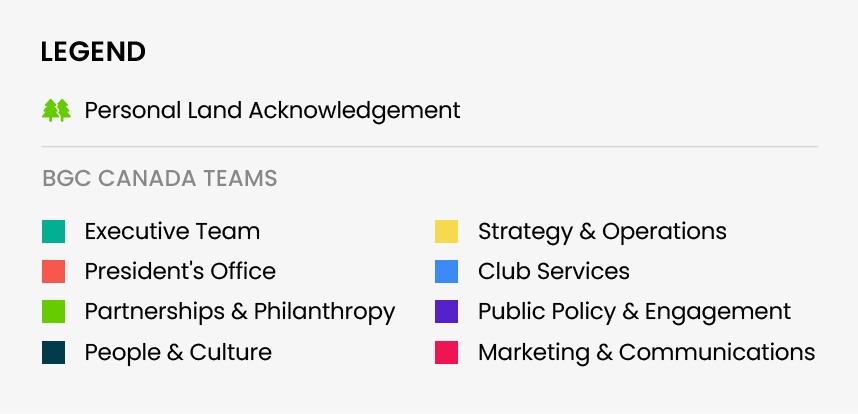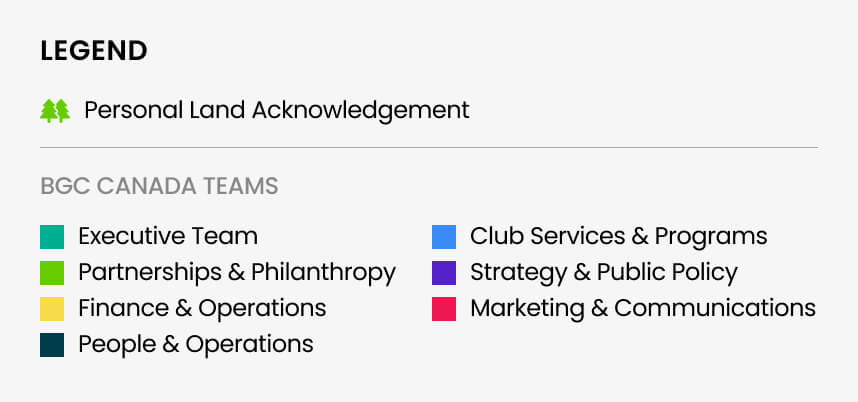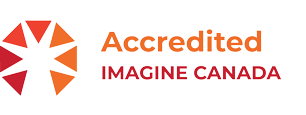
Owen
Charters
He/him
I am privileged to live, work, and play on the traditional territory of many nations including the Mississaugas of the Credit, the Anishnabeg, the Chippewa, the Haudenosaunee and the Wendat peoples, and land that is covered by Treaty 13 signed with the Mississaugas of the Credit, and the Williams Treaties signed with multiple Mississaugas and Chippewa bands.
Living near the shores of Lake Ontario, I am reminded of all those that have come before me in walking on this land and enjoying these waters, and the responsibility to protect these beautiful resources for generations yet to come.
President
& CEO

Marlene
Deboisbriand
She/her
I am honored and grateful to live and work in Gatineau, Quebec. Gatineau is located on the unceded territory of the Algonquin, an Anishinaabe people who have occupied the entire Ottawa watershed for thousands of years. I pay my respect to elders, both past and present.
Vice-President,
Strategy & Operations

Carrie
Wagner-Miller
She/her
Here on Vancouver Island, I am located in Nanoose Bay which is home to the Snaw -naw-as people, who are the sole survivors of a battle that took place in the 1800s. The community is known as the Nanoose First Nation, and the Snaw-naw-as tribe, along with 18 other tribes in the Salish Sea, all known as the Coast Salish people, and is one of the most Northern tribes on the east side of Vancouver Island.
I would like to recognize that as a staff team we are spread out throughout Canada and are located on various traditional First nations lands. Personally, I want to acknowledge that I am located in Nanoose Bay, which is the unceded territory of the Coast Salish peoples and I feel fortunate and grateful that I have been able to settle in this beautiful part of the country.
Vice-President,
Mission & Membership

Alexandra
Sanchez
She/her
I acknowledge that the land that I am working on today is the traditional territory of the Mississaugas of the Credit, Anishinabek, Haudenosaunee, and Wendat peoples. This territory is under Treaty 13, which was signed with the Mississaugas of the Credit in 1805, and the Williams Treaties, which were signed by several Mississaugas and Chippewa bands in 1923. I am grateful to and honour the people who have cared for the land before me and the many First Nations, Inuit, and Métis peoples that reside here today.
Accounts Payable
& Systems Specialist
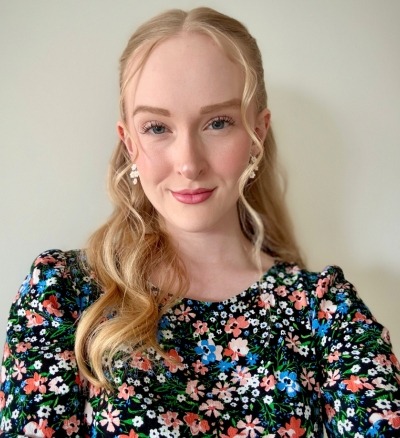
Amelia
Cruddas
She/her
Partnership
Specialist

Antoine
Bélanger-Huot
He/him
Manager, Club Support – Central Region

Bouchra
Sidali
She/her
I acknowledge that I live and work in the territory and Treaty 13 lands of the Mississaugas of the Credit First Nation. I also recognize the traditional territory of the Huron-Wendat and the Haudenosaunee.
I am grateful to have the opportunity to live and work on this beautiful land. I pledge to learn and understand the stories of the land we call home, advocate for Indigenous People by sharing my learnings with others as visitors on this land.
Manager,
Executive Office

Brooke
Duval
She/her
Senior Director,
Partnerships & Philanthropy

Catelyn
Brett
She/her
Senior Manager,
Partnerships & Philanthropy

Dayna
Goren
She/her
Manager,
Programs

Deena
Reis-Binne
She/her
“As a non-Indigenous person, I commit to continuously learning about and honouring all those who been impacted by colonialism and the Residential School system. As a settler in British Columbia, who resides onthe traditional, ancestral, and unceded territory of the Okanagan/syilx people, I am deeply distraught by the number of children who have been discovered at Residential Schools. I encourage all Canadians to listen survivor stories and honour all those who were forcibly removed from their homes and families. If you know of anyone who needs emotional support, please encourage them to contact the 24-Hour Residential School Crisis Line at 1-866-925-4419.
Senior Director,
Programs

Duncan
Johnstone
He/him
In acknowledgment of the Mi’kmaq people, the signed Peace & Friendship Treaties, and the ancestral and traditional lands of Mi’kma’ki on which I live, play, and work, I recognize the significant contributions of the Indigenous peoples and our shared history. As all people of Canada are Treaty People, I hold a personal duty to remain educated and aware of our shared history and future and to let this knowledge help guide me in my everyday actions and decisions.
Manager, Club Support
– Atlantic Region

Émie
Boies Bastien
She/her
Manager, Bilingual
Communications
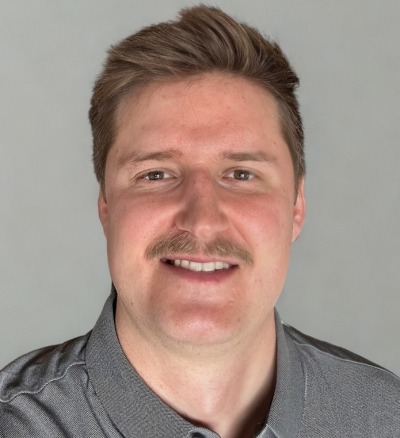
François
Kenny
He/him
Manager,
Partnerships & Philanthropy

John
Burton
He/him
I am giving recognition to the land that I am currently on by acknowledging this is in Mi’kmaw’ki, the unceded and ancestral territory of the Mi’kmaq people. Specifically, K’jipuktuk (Juh-book-took)/ Halifax, known as The Great Harbour.” The Mi’kmaq people have occupied these lands for over 12,000 years. The land in which we occupy is a shared privilege. One of which we benefit from greatly based upon broken Treaties, the legacy of Residential Schools and colonial policies such as the Indian Act. Despite past events, Indigenous populations continue to exude resiliency and pride. They are worth celebrating. Today, I honour this relationship. We are all Treaty people.
Director, Atlantic Region
& Training
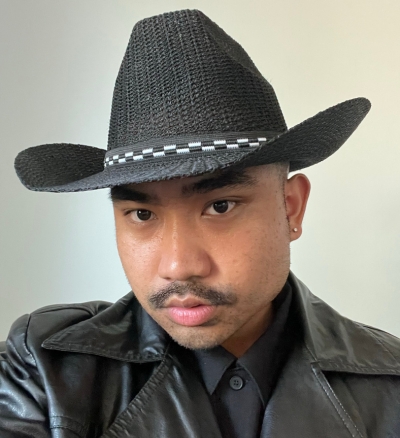
Joshua
Quimoyog
He/him
S4S
Project Coordinator

Joy
Angelique Agres
She/her
Manager,
Partnerships & Philanthropy

Laura
Sutherland
She/her
Evaluation
Specialist

Leah
Mabhurukwa
She/her
Manager,
Partnerships & Philanthropy

Leslie
Elliott
She/her
I would like to acknowledge that I am a settler on the traditional and unceded lands of the Anishinabewaki, Kanien’keha:ka (Mohawk), and Algonquin people, now known as Ottawa. Today, negotiations are in progress toward Ontario’s first modern-day treaty. It identifies the Algonquins of Ontario Settlement Area in eastern Ontario where more than 1.2 million people live and work.
Manager,
Governance & Strategic Initiatives

Lisa
Gamblin
She/her
Manager,
Indigenous Programs

Mary
O’Connell
She/her
I wish to acknowledge the Ancestral Traditional Territories of the Ojibway, the Anishnabe and, in particular, the Mississauga’s of the New Credit whose territory I live on. This territory is covered by the Upper Canada Treaties.
As someone on this land, I am obliged to learn more about the cultures and people that came before me. I plan to support their history by learning more about reconciliation and sharing information to aid the education of our current generation.
Director, Brand &
Creative Services

Megan
Ondr-Cooper
She/her
I moved to Vancouver in 2021 and like many who move to this area, it was the water, mountains, and trees that drew me to want to live in such a stunning landscape. Since time immemorial, the Musqueam, Squamish, and Tsleil-Waututh peoples have cared for this majestic land. As I work and play on this beautiful land I now call home, I am committed to the ongoing responsibility I have to be a partner in reconciliation and to understand the history of and honour the land on which I live.
Senior Manager,
Impact & Evaluation

Melanie
Lukevich
She/her
Manager,
Programs

Sarah
Jefferies
She/her
I respectfully acknowledge that the land in which I live and work on is situated on the traditional territories of the Erie, Neutral, Huron-Wendat, Haudenosaunee and Mississaugas.
Program Support Specialist

Sam
Lapensee
They/he
I acknowledge that I live, learn, and work from Nogojiwanong, meaning “place at the foot of the rapids, “ also known as Peterborough. Located in Treaty 20 Territory, Nogojiwanong is home to the Michi Saagiig Anishinaabeg. As a settler, I am grateful for their care and teachings about this land and the waters I call home.
Interim Digital Media
Manager

Sean
Smith
He/him
Director,
Finance

Teresa
Murray
She/her
With deep respect and gratitude, I acknowledge the land on which I live, work and love, is the traditional and unceded territory of the Syilx Okanagan people. The Syilx Okanagan peoples have taken care of their beautiful lands since time immemorial. Colonialism created a Canada/US border that separated Okanagan families and disrupted waterways, fishing and hunting. Children were sent to residential schools far away in other territories. As I learn about the history and atrocities of colonialism, and specifically about the Syilx territory on which I was born, I recognize my role as an individual in the work of reconciliation. I commit to doing the work to learn, unlearn and relearn and call on governments and corporations to complete the 94 Calls to Action.
Senior Manager,
Programs

Thérèse
Lorincz-McRae
She/her
With gratitude, I acknowledge that I am on Treaty 6 territory in Edmonton – a traditional meeting ground, gathering place, and travelling route of the traditional and ancestral territories of the Cree, Dene, Blackfoot, Saulteaux and Nakota Sioux. We acknowledge that this territory is home to the Métis Settlements and the Métis Nation of Alberta, Regions 2, 3 and 4 within the historical Northwest Métis Homeland.
We acknowledge the many First Nations, Métis and Inuit who have lived in and cared for these lands for generations. We are grateful for the traditional Knowledge Keepers and Elders who are still with us today and those who have gone before us.
Manager, Club Support
– Western Region

Traci
Anderson
She/her
I would like to respectfully acknowledge that I have the privilege to live, learn and play on the unceded lands of Tk’emlúps te Secwépemc located in the traditional Secwépemc territory in the interior of BC. I’m grateful to call Kamloops my home, Kamloops is the English translation of the Secwépemc word Tk’emlúps, meaning ‘where the waters meet’. This is significant to the rich history of the Secwépemc people, which I encourage learning about this history. I commit to being responsible and respectful of this land, and to the people both residing here and to the acknowledgement of those that came before me. I commit to increasing my knowledge of Indigenous culture and incorporating this learning into my everyday life
Director,
Western Region

Yannick
Hebert
He/him
I acknowledge that I work from Edmonton, located within Treaty 6 Territory and within the Métis homelands and Métis Nation of Alberta Region 4. I acknowledge this land as the traditional territories of many First Nations such as the Nehiyaw (Cree), Denesuliné (Dene), Nakota Sioux (Stoney), Anishinaabe (Saulteaux) and Niitsitapi (Blackfoot).
I would like to pay my respects to these Nations and elders both past and present and I consider myself fortunate to have the opportunity to live and play on this beautiful land that has been under their care for so many years.
I want to advocate for equal education funding for Indigenous People and I call on the federal government to adopt recommendation 8 of the Truth and Reconciliation Commission’s Calls to Action.
Senior Manager,
Programs
Our National Team serves BGC Clubs across the country in the following key areas:
- Strengthening Club experiences with essential national programming
- Increasing access to critical funding
- Guiding the BGC movement
- Enhancing the national BGC brand
- Advocating for children and youth
Through the national office in Toronto, and three regional directors across Canada, BGC Canada provides Clubs with programs, communications, resource development, and increases both staff and volunteer capacity with leadership development and hosting national forums for collaboration. BGC Canada is proud to serve as a fully bilingual organization, with a dedicated Quebec regional team and ability to offer all programs and resources in both French and English.
BGC Canada equips Clubs with critical funding through a national grant system, which guarantees that program execution is well supported and we can effectively track and measure results. Reporting information from Clubs helps BGC Canada understand the changing needs of communities across the country, providing a premise for advocacy work nationally and regionally and ensuring national programs remain effective and cutting-edge.

